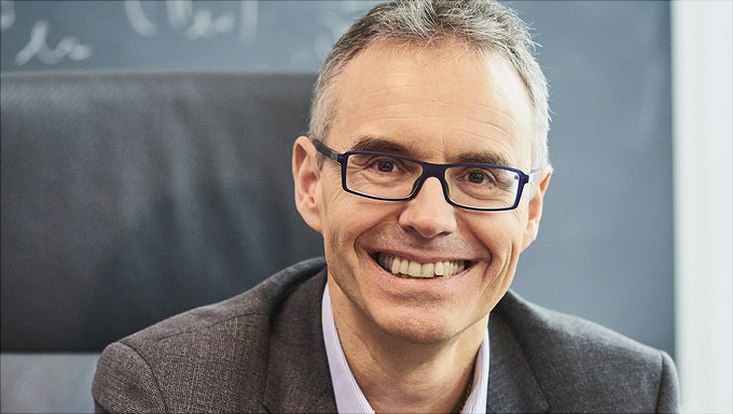Quantum materials engineering with light: a QEDFT perspective
Abstract:
One of the principal challenges in computational physics is to formulate an accurate yet computationally viable theory that can address non-equilibrium light-driven phenomena in molecules and quantum materials. Additionally, there is a need to simulate spatially and temporally resolved spectroscopies, ultrafast events, and newly emerging states of matter. In pursuit of this goal, TDDFT has emerged as the cutting-edge ab initio theoretical framework, enabling reliable and precise simulations of light-induced alterations in the physical and chemical characteristics of intricate systems. In this context, I will also introduce the recently developed framework of Quantum Electrodynamics Density-Functional Formalism (QEDFT). This framework offers a first principles approach to predict, characterize, and manipulate the spontaneous emergence of ordered phases in strongly interacting light-matter hybrids, referred to as polaritons. These phases manifest both as ground states, resulting in novel states of matter, as well as metastable states. Noteworthy examples include photon-mediated superconductivity, cavity fractional quantum Hall physics, and optically driven topological phenomena in low dimensions. This exploration brings to light a burgeoning field, which we term “Cavity Materials Engineering” or the science of strongly correlated electron-photon interactions. We will conclude with the great challenges ahead in this captivating field of research.
About the speaker:
Angel Rubio received his PhD in Physics in 1991 from the University of Valladolid. He then moved to a
postdoctoral position at the Physics Department at the University of California, Berkeley, from 1992 to 1994. Between 1994 and 2001, he served as an Associate Professor at the University of Valladolid. In 2001, he was appointed as a Full Professor of Condensed Matter Physics and became the director of the Nano-Bio Spectroscopy Group. In August 2014, he accepted the position of Director at the Max Planck Institute for the Structure and Dynamics of Matter in Hamburg, Germany. Since 2017, he is Distinguished Research Scientist at the Simons Foundation’s Flatiron Institute in New York, USA. He is renowned as one of the founders of modern “theoretical spectroscopy” and the creator of the widely used ab initio open-source project, Octopus. Recently, he developed the theoretical framework of “quantum electrodynamical density functional theory (QEDFT),” enabling the ab initio modeling of strong light-matter interaction phenomena in materials, ranging from non-equilibrium metastable states of matter to cavity-quantum materials engineering. His work has been recognized with several awards, including the 2018 Max Born Medal and Prize, the 2016 Medal of the Spanish Royal Physical Society, the 2014 Premio Rey Jaime I for basic research, the 2006 DuPont Prize in nanotechnology, and two European Research Council Advanced Grants. He is a Fellow of the APS, EPS, and AAAS and a member of the Leopoldina Academy, BBAW, the European Academy of Sciences, the Academia
Europaea, and the National Academy of Sciences (USA).
This year we will continue with the new format:
- Onsite on Campus Limpertsberg, where you will have the opportunity to meet the speaker over the lunch. Catering is offered from 12:00 PM to all registered participants (BSC Hall). Please register below for the lunch latest on 14 October 2024. Talk at 1:00 PM in BSC 0.03.
- Online – through Webex – to give you the opportunity to listen to the talk in case you are travelling or cannot make it onsite at Campus Limpertsberg. Here are the details to join the talk online: Meeting number: 2732 810 3997. Password: JzDmEM5g64a
